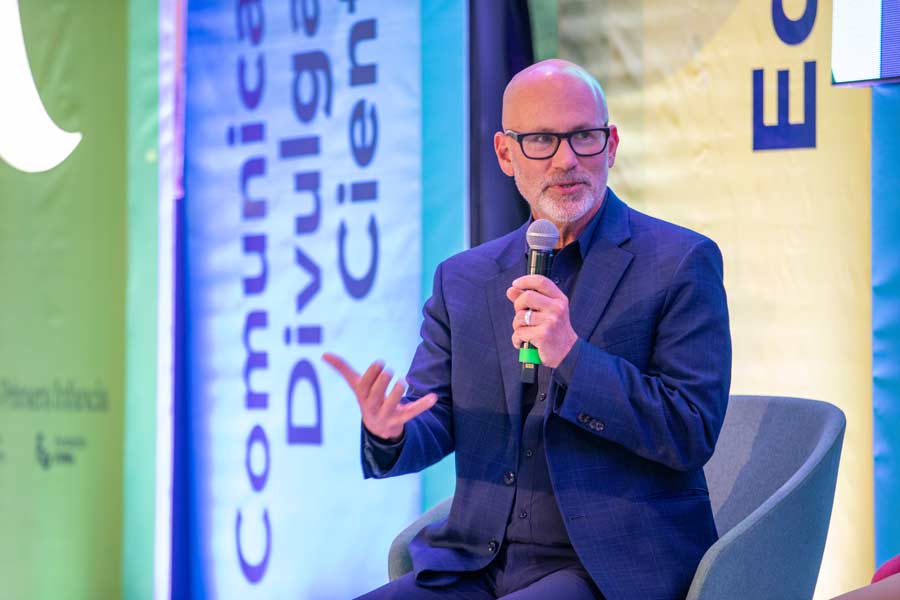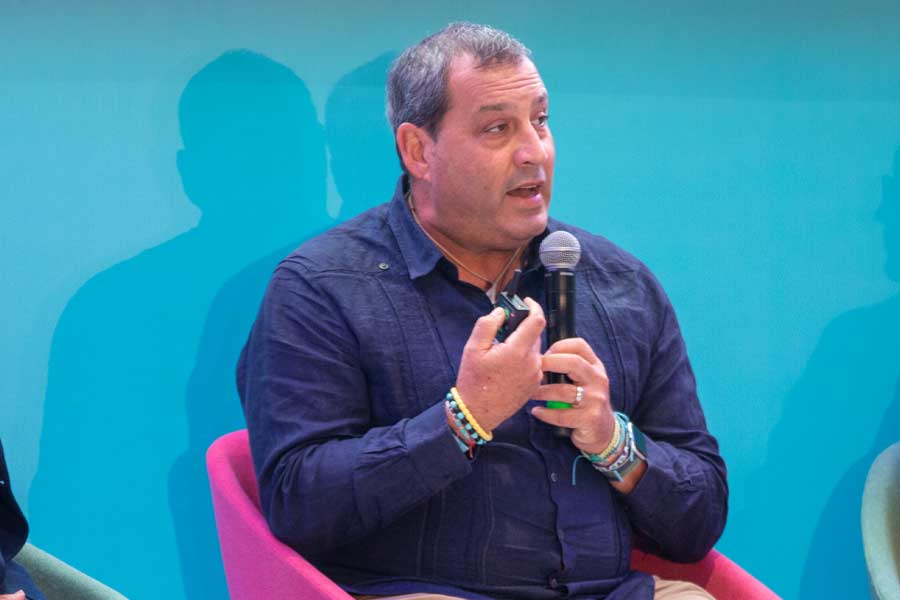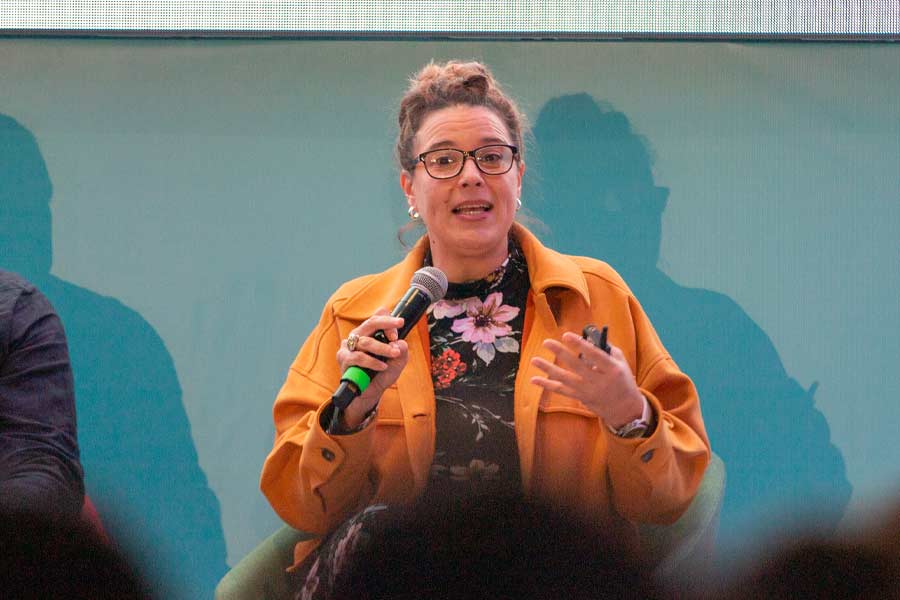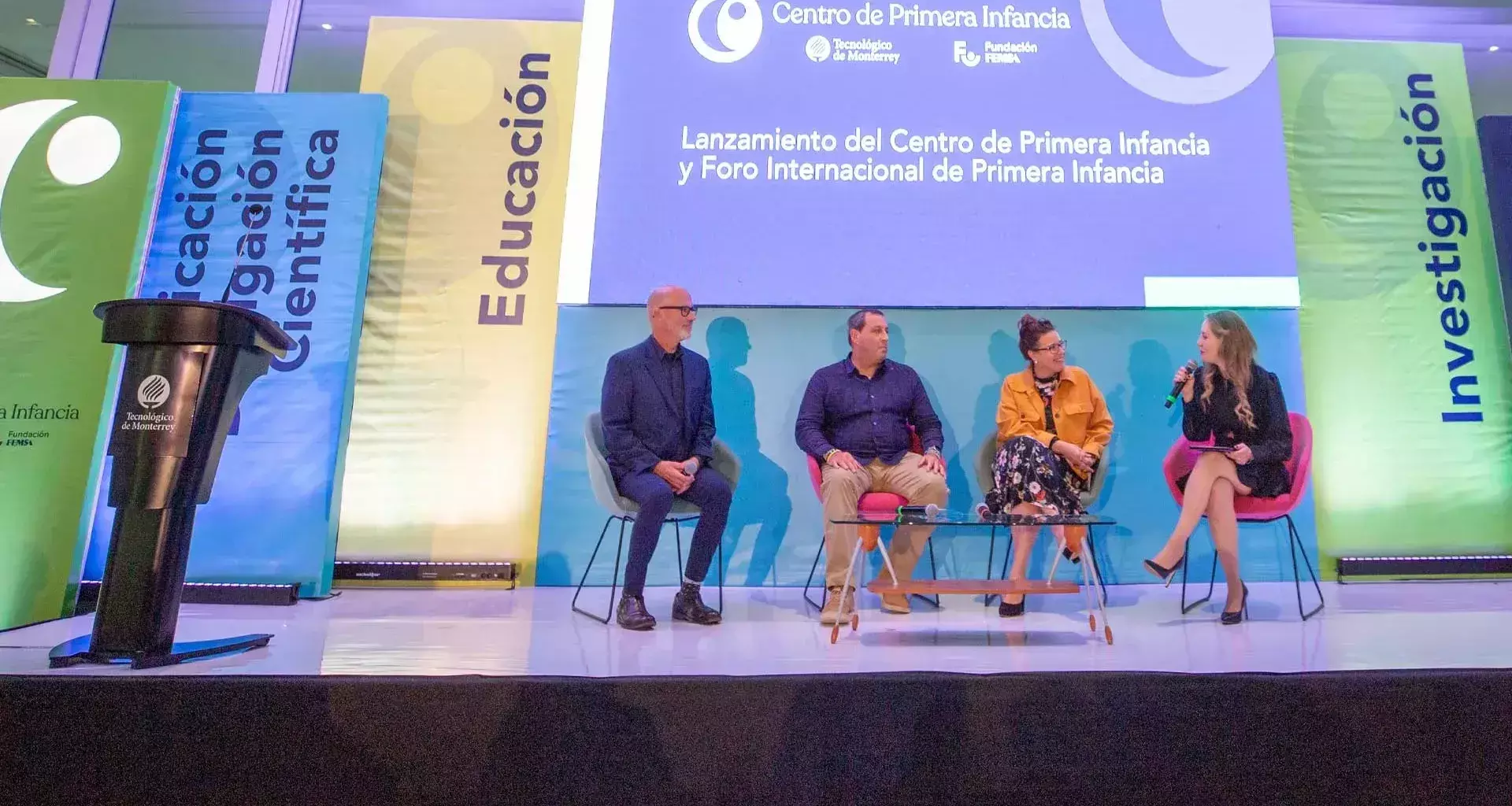What are the challenges of improving living conditions for young children? What role can universities assume in the development of children between 0 and 5 years of age?
These were questions raised by childhood development experts during a panel at the 1st International Early Childhood Forum hosted by Tec de Monterrey and the FEMSA Foundation.
This panel included leaders from early childhood centers at universities such as Harvard, Stanford, and Georgetown who spoke about the challenges and working approaches at their institutions.
The forum was held on November 28 at the Monterrey campus, where the Tec and the FEMSA Foundation also officially launched the Center for Early Childhood.

Challenges of early childhood development
In a discussion moderated by the center’s associate director Adriana Gidi, Director of the Stanford Center on Early Childhood Philip Fisher spoke about 4 challenges in childhood development.
“We’ve identified 4 specific areas: historically, research progresses very slowly; information flows in one direction, which entails suppositions about where and how knowledge can be beneficial,” said Fisher.
“There’s also a need to continue developing future leadership in all areas of the early childhood ecosystem; and it’s hard to track how development occurs, understanding or measuring when a kid is on the right track,” he added.
The center he runs has implemented tools to accelerate research, greater flow of information and interaction with communities, scholarship programs to shape leaders, and technology-based measurement strategies.

Promoting cross-cutting collaboration
Neal Horen, Director of the Early Childhood Division at the Georgetown University Center for Child and Human Development, mentioned the need to help young children develop in a coordinated and connected fashion.
“At the center, we work on all kinds of topics related to early intervention. We have several centers for training and technical assistance, and we’re connected to other departments such as Psychology, Psychiatry, or Education.
“It’s our job to use an incredible amount of science to collaborate with people in communities across the United States,” explained Horen.
Horen remarked that much of the work done at centers nationwide is aimed at attending to children with disabilities or emotional difficulties from a systemic perspective.
“We have an entire research team that takes what’s been learned and incorporates it into the support we provide to the community. We’re striving to turn evidence into impact by combining mental health and primary care for early childhood.”
He also mentioned that they are working on developing projects with partners at university level, such as academics from the Faculty of Law or the School of Public Policy.

Communicating and generating impact
Priscila Pumarada, Assistant Director of Innovation Partnerships and Business Development at the Center on the Developing Child at Harvard University, shared her institution’s strategies.
She said that universities need to gather cutting-edge knowledge and evidence so that people in the field of early childhood can translate them into feasible solutions for the community.
Pumarada explained that the Harvard center follows two paths: summarizing, translating, and communicating the science of early childhood; and through this, involving and supporting stakeholders such as decision-makers to shape and mobilize agendas.
“We have a group that’s dedicated to seeing where there are collaboration opportunities for involving leaders such as decision-makers or policymakers to see how we can contribute.
“Many times, we realized that people would say, ‘OK, I understand the science. What can I do now?’ We’ve developed a group that’s focused on instruction to understand how we can have an active role in that part of development,” said the assistant director.
Launching the Center for Early Childhood
Tec de Monterrey and the FEMSA Foundation have launched the Center for Early Childhood.
“Our mission is very clear: to promote wellbeing in early childhood in Mexico and Latin America,” said the center’s associate director.
“We want to create solutions for children to improve their wellbeing, which we’re going to achieve through public policy and innovative programs and solutions,” added Gidi.
The Center for Early Childhood’s strategy is based on 4 pillars:
- Cross-cutting and applied research
- Education, training the ecosystem’s key stakeholders
- Science communication
- Outreach
Through the Center for Early Childhood, the Tec and the FEMSA Foundation will collaborate with La Tríada institutions the University of Los Andes in Colombia and the Pontifical Catholic University of Chile.
“Investing in people and their potential is the only way we have of building fairer and more prosperous societies,” said Eva Fernández, the Femsa Foundation’s Manager of Social Investment in Early Childhood, during the center’s launch.
ALSO READ:





